Welcome to A Wild Green Heart. I'm truly grateful to have you here, reading or listening to these musings.
“Imagination is the meeting of the spirit and the flesh” - Danny Deardorff
Today I'm diving again into the subject that has been keeping me occupied for much of the year so far, and will continue to do so: Imagination and the Imaginal Realm,1 terms that I'm going to use more or less interchangeably, if only because I mean the same thing when I talk about them.
This series began a few weeks ago with a show-don't-tell approach, in which I told a three-part story birthed from my own Imagination during a time primarily defined by my immersion in meditation, psychotherapy, and myth. If you didn't listen to that, I would encourage you to begin there, in the depths, before continuing here.
As some subscribers will be aware, Imagination is the word that Life has given me for 2025. It is only natural then, as I continue to dig into what this might mean for my life and creative work, that I will process some of this out loud on here.
I am beginning to understand that, along with Presence and Attention, Imagination might just be the most precious gift I can offer the world. Arguably, that anyone can offer the world. This is a suspicion that has been burgeoning in me for some time now, as I've listened to and read others talking about it.
To help understand what Imagination is, it is perhaps useful to first explore what it is not. Because it's quite possible that many people hearing the word “imagination” conclude that it is about an escape from the real world into the fantasies of the mind - and in fact nothing could be further from the truth.
One strong distinction I have encountered from some of those who've considered the matter, is precisely that between Imagination and fantasy. The latter is generally posited as a move away from, or an escape from, the reality of the world. Whereas the former is actually aligned with a deeper perception of what is most Real; a faculty of the soul to see and express what is most needed in the world. Here's novelist and philosopher Iris Murdoch, outlining the contrast between the two:
Imagination, as opposed to fantasy, is the ability to see the other thing, what one might call, to use those old-fashioned words, nature, reality, the world… Imagination is a kind of freedom, a renewed ability to perceive and express the truth.
- From an essay in “Existentialists and Mystics: Writings on Philosophy and Literature”
And here is poet William Carlos Williams, addressing the same idea near the start of his book “Spring and All” as a rebuttal of any who might accuse his stance as being one of retreat from life:
And if when I pompously announce that I am addressed - To the imagination - you believe that I thus divorce myself from life and so defeat my own end, I reply: To refine, to clarify, to intensify that eternal moment in which we alone live there is but a single force - the imagination. This is its book. I myself invite you to read and see.
This notion of Imagination as the Most Real Place is addressed time and again by writers, storytellers and poets. To illustrate it for a third time here's mythologist and author Michael Meade saying the same thing in another different way:
Unlike fantasy, that often leads people away from life, imagination is the mythic key that can unlock the destiny rooted in each of our individual lives. Imagination is the spark of the Divine within each of us, that leads us to paths of awakening and healing - and that can make us capable of contributing to a renewal of life on Earth.
- From “Living Myth” podcast, ep 417 “A Story That Must Not Be Forgotten”
“The mythic key that can unlock the destiny rooted in each of our individual lives” and “A renewed ability to perceive and express the truth” are powerful notions - ones that something deep within me longs for.
I suppose it all boils down to whether or not we believe that the multiple crises and oppressions of our time can be successfully tackled using left brain rational thinking and advanced technology - or whether, like me, you believe those approaches are most often a huge part of the problem. My sense is that a re-membering of something much older, much deeper, and much more connected to the web of life - in a creaturely way - is required.
As Meade, talking about all the current crises we face, has pithily expressed it:
To expect answers to come from a place where imagination doesn't exist is not wise.
My instinct about the relevance and value of Imagination was bolstered a while back by listening to the marvellous Ellen Davis, interviewed by Krista Tippett on an episode of OnBeing they initially aired back in June 2010.
Speaking about the poetry of the bible, Davis says this:
Poetry is language that speaks to our hearts. And I’m using the biblical word 'heart' … I think the closest equivalent to that in 21st-century language is our imaginations. …In biblical physiology, the heart is the centre of our emotions, but also of our intellect, and those two things cannot be separated.
These words point us towards two more wise connections. Firstly, that what I am calling the Imagination has been known by other names in other cultures. A Hebrew understanding of the word “heart” in the old testament context meant more than just “feelings” and included the seat of human sense-making and thinking too. And secondly, that when talking about Imagination in the truest sense, we mean far more than simply “thought.” Imagination also includes emotions, intuition, and all of our other human intelligences. It is resolutely both a left and right brain, and indeed a whole-body, activity.
One person way ahead of his time when it came to understanding the power of the Imagination, and who I think can help guide us through this territory, was the gifted poet-philosopher William Blake. As part of my current exploration of the Imaginal, I am delighted to be taking part in a six week online “Blake Deep Reading Group”, in which we are reading aloud together “The Marriage of Heaven and Hell”. The group has been gathered and is hosted by the wonderful Eleanor Robins, whose writing here on Substack is all about Imaginal things.
We are being guided through the text by musician and poet Valentin Gerlier, author of the forthcoming book, “Heaven’s Wildflowers: A Blakean Theory of Nature, Culture and Imagination.” For this section about Blake, I am tremendously indebted to Valentin for his insights, shared with the group, and which make up much of the following.
Blake saw the Enlightenment’s separation of poetics from ethics, of spirit from body, and of the good from the beautiful, as both unnecessary and deeply unhelpful. He was a true visionary in this regard. Blake believed that creative genius, or Imagination, was the inner power of all humans, and heavily critiqued religion for insisting that we must look outside ourselves for that quality - and for asserting that the best nourishment for our souls came from obeying and submitting to religion. He also saw that what was happening to religion over time mirrored our inner dramas.
Blake's focus was about having a relentless desire to burn through all false imagery, and to enter the fully alive human senses. He believed that the Imagination was a sensory thing as well as something involving the mind: that the mental and the sensual must dance together, as we have recently explored.
Significantly to me, Blake worked out at a young age that the bible was not meant to be read literally, but symbolically and mythically. He was way ahead of his time in this regard, and in my opinion hit upon a critique that is just as valid now as it was then. Perhaps the strongest critique I have2 of contemporary Christianity3 is its inability to approach its primary text with any Imagination, in stark contrast to other books or stories.
This lack of Imagination that I've frequently encountered in Christian circles makes for a vexing reality, in which people with genuine faith and hunger to learn shoot themselves in the foot, and then wonder why they walk with a limp. In church circles I often heard it stated (quoting the bible about itself) that "the word of the lord is living and active."4 It was sometimes added that, being God's word, it was also complete and infallible. By my estimation, rather than making it living and active, this by definition renders it dead and inactive. Because infallibility implies perfection, and what is perfect lacks the one thing needed for life - the ability to continue to grow and change. Any complete and perfect thing is immediately also a dead thing, and thus cannot possibly speak to us any more.
Here, to say more on this very subject, is myth-teller extraordinaire, and relatively recent convert to Christianity, Martin Shaw. These words are from his Substack post “Sacred Stories: Seeking a Liturgy of the Wild, part 17”
Myth is about connotation not denotation, it’s about symbols not signs. People are snooty these days about metaphors but that’s a kind of modern nonsense, a metaphor being a symbol which mercifully doesn’t tell you quite what it is, allowing an indefinite number of associations to flood in. It’s how poems work. It’s how we find something to nest within when we fall in love. We need wiggle room for our imagination. Something that elements of Christianity has thinned profoundly out. No more talking over the hedge to an earth in full-Christ disclosure, but a mystery hammered into some kind of fundamentalist mission statement or taking its cue nervously from a culture that’s turned its back on it. These are both disasters.
Returning now to William Blake: in his theology, all Imagination is the Body of Christ. It is an outward movement of universal cosmic expression. It can never be reductionistic, or create a reality in which spiritual enmity prevents friendship. In fact, Blake sets such an alienating reality in direct opposition to Imagination. As well as a true, cosmic, Imaginal God, Blake portrays another god, Urizen, (also called - what a grand pun - Nobodaddy!) an old man who has constructed an abstract, disembodied cosmos and who falls into abject despair at the subsequent alienation he experiences.
I will conclude my thoughts on the role of Imagination in Christianity and in life with this quote from the Gospel of Thomas. This gospel is a text not included in the canonical scriptures, (it was, after all, only discovered in the middle of the twentieth century) but which has, according to Gethin Abraham-Williams, writing in his book “Why the Gospel of Thomas Matters”, gained
“an appreciable degree of scholastic acceptance as a Fifth Gospel, worthy of being received and studied alongside the other four… as part of the ongoing life, witness and devotion of the Christian church.”
Here's the quote, from The Gospel of Thomas verse 62a:
Jesus said, “To understand the things I say, you need to use your imagination”
As someone who really wants to understand - and also to sense, to feel with my body and my emotions - all the truth and beauty that life has to offer, it therefore seems imperative that I learn to use mine!
I'm running out of steam now, and I'm left with the frustrating sense that this post about the Imaginal as a meeting point of mind, feelings, and embodied sense-making, is all rather left-brain heady. Perhaps it's the necessary counter-balance for my first post in this series, Three Ocean Temples, which was very much an emotional and embodied work.
But don't worry - there's plenty more still to come in this series, which no doubt will emanate from my personal experiences of accessing the Imaginal Realm through meditative practice, weaving deep connection with place, and making shamanic journeys. There will be stories poems and images that I have been birthed from these places. That's where all the real juiciness resides! And that is what I intend to return to in my future posts on Imagination. I hope you’ll come along for the ride!
I'll leave you all with one final quote about the role of Imagination, and why its usage is so important and so powerful. This one is from the magnificent poet Andrea Gibson:
Imagination isn’t an escape; it’s an act of liberation, a door flung open to something wildly new. The freer we become inside ourselves, the freer our world will be.
I'm curious to know - what do you believe the Imagination is? How do you understand its role in life? What are the fruits of Imaginal Realms in your own experience? The comments are open, and I only wish I could offer you a cup of tea and a slice of cake there too. Thanks for reading.
If the capitalisation of these words annoys you, please just try to ignore it, it's not going away.
Yes, obviously there are much more horrific things to critique about the long, oppressive colonial history of this religion. I'm talking here of Christianity in its current, rather tepid, 21st century Western form.
Obviously, not all contemporary Christians, but certainly the majority of evangelicals and charismatics I've known.
Hebrews chapter 4 verse 12


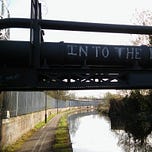


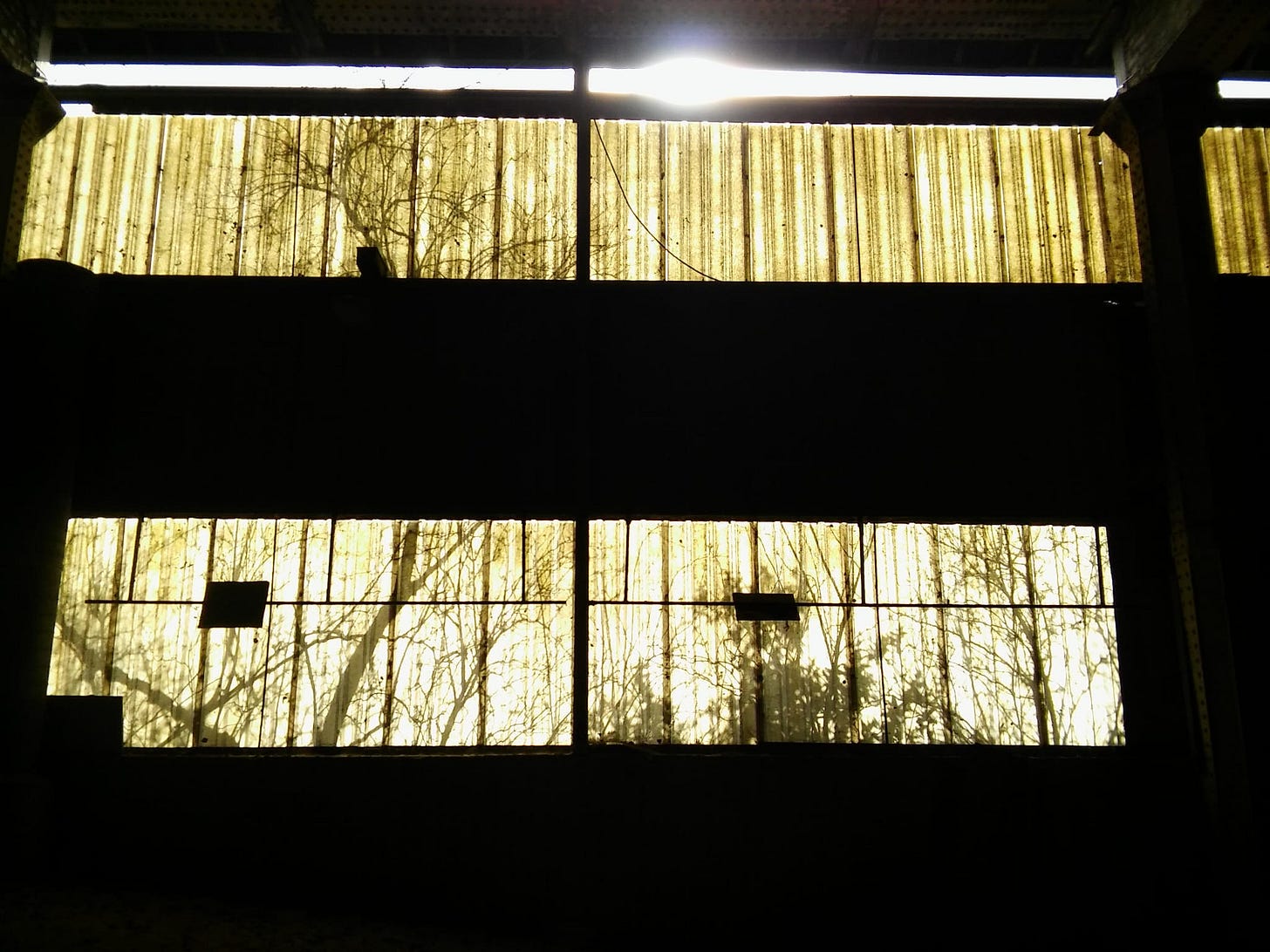

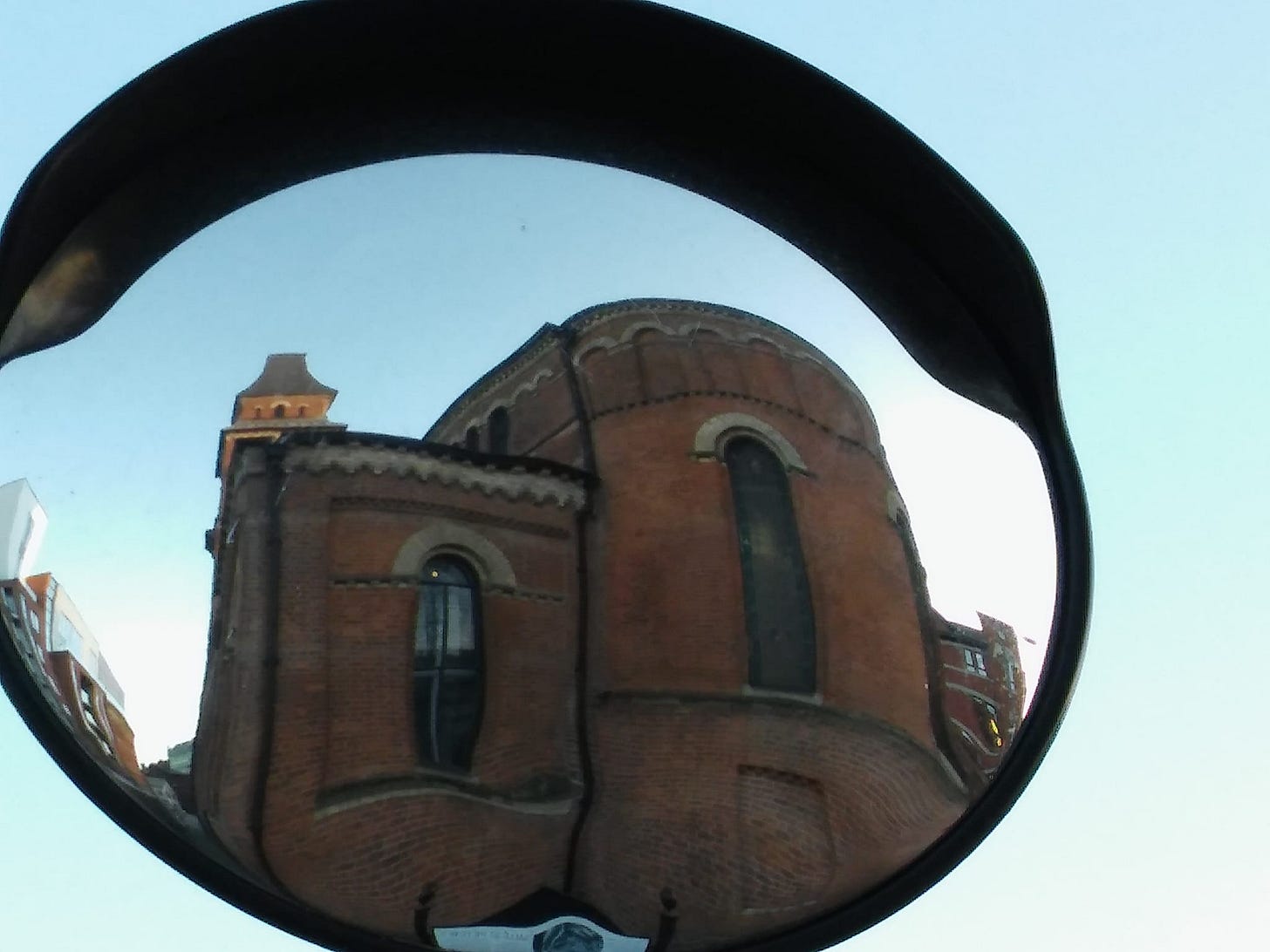
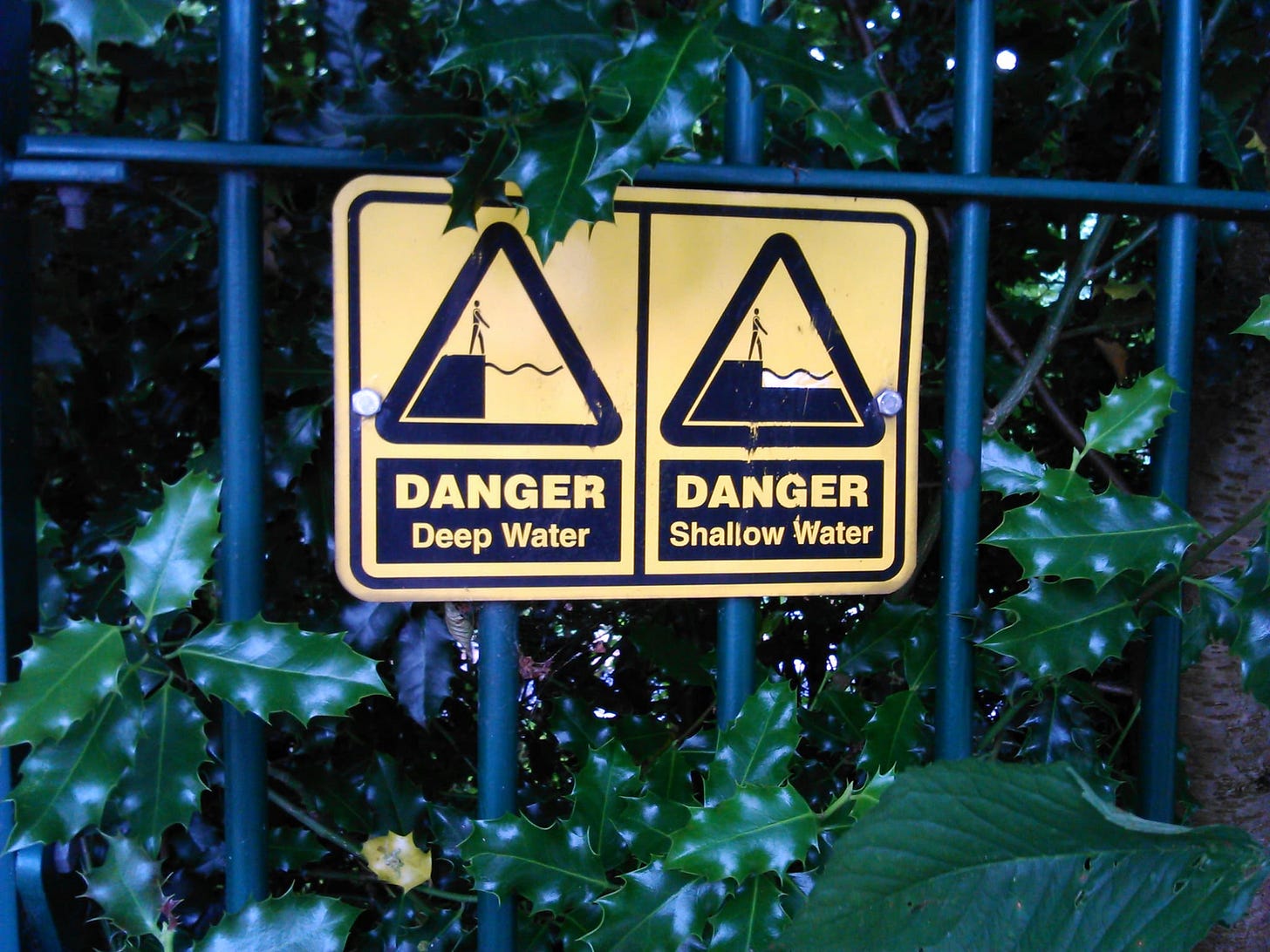
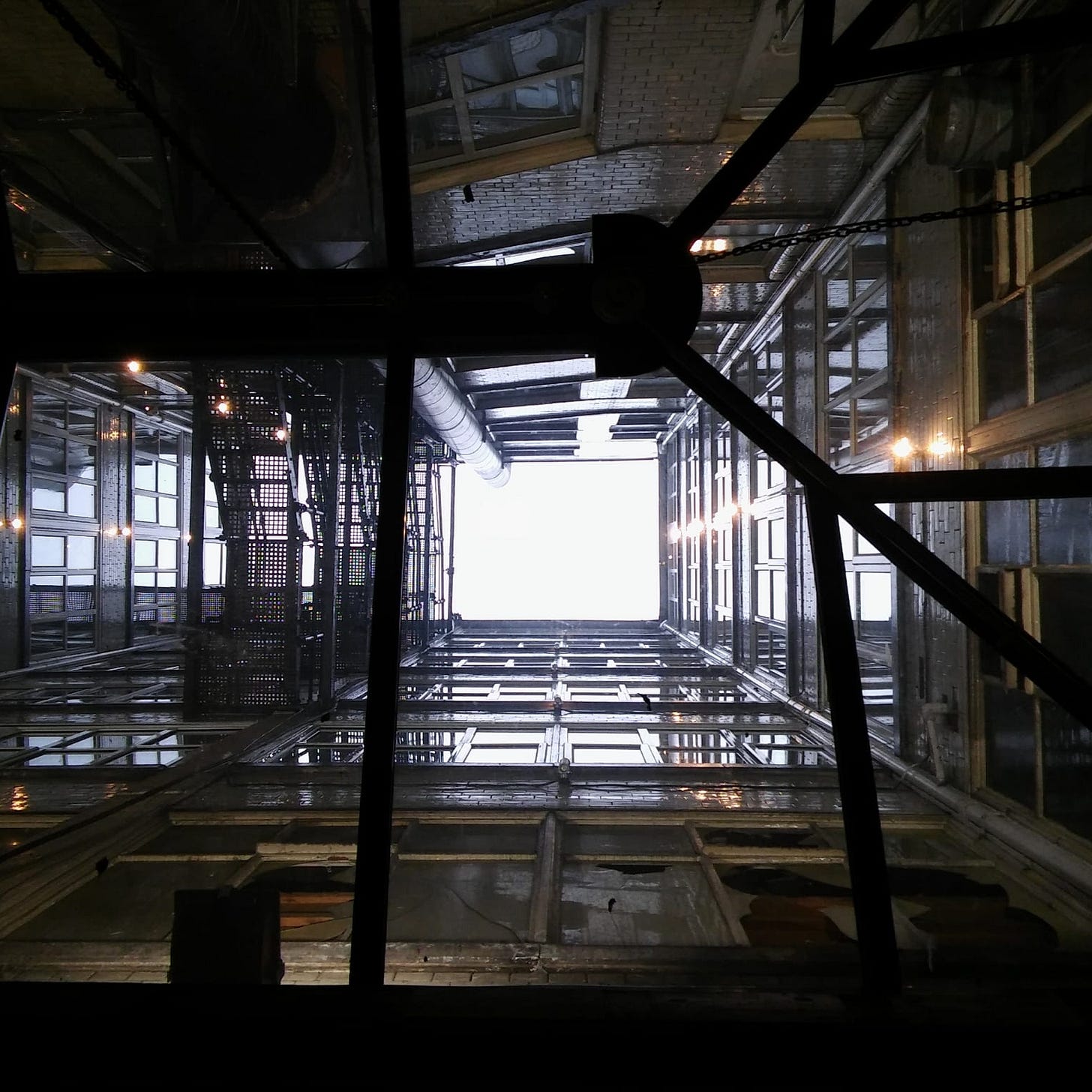









Share this post